How to Write a Great Self-Help Book
As a young child, I loved writing short stories. I dreamed that one day I would write a book, and that it would make others smile or feel better in some way.
I finally achieved that dream last year at the age of sixty-five years old, when my book Unhackable Soul: Rise Up, Feel Alive, and Live Well with Pain and Illness was published in April 2022.
Incredibly, a month after its release date, my book hit the Amazon.com best-seller list at #1 in the category of Personal Transformation & Spirituality, #1 in Pain Management, #2 in Faith & Spirituality, #2 in New-Age Self-Help, and #3 in Family & Relationships. Not only had I achieved my dream of writing a book, and having it published, it had become an international best-seller.
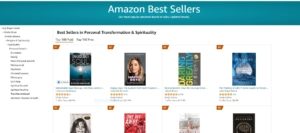
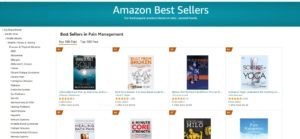
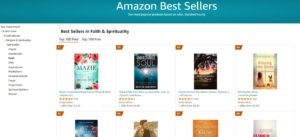
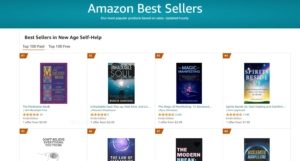
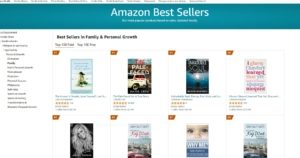
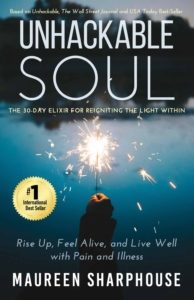
Aware of the success of my book Unhackable Soul hitting the Amazon.com bestseller list shortly after its release, I was recently asked to write an article for the wonderful online writers platform Writing.ie on how to write a great self-help book.
Here are the Top Strategies, Hints and Tips I shared with them:
Questions I asked myself:
- Who are you writing your self-help book for? Who is your ideal reader?
- What pain or problem does your reader have?
- What are the benefits to your reader of reading your book? What solution does your book offer?
- What tangible and meaningful lasting results can your reader expect to gain from implementing into their lives what you share?
- Why should your reader listen to you? What relevant experience, credibility and expertise do you have?
Things I reminded myself of:
A self-help book is not a DIY manual: Your reader doesn’t simply want to know or be told about the steps they can take to– they want to be shown, guided, and supported on the practical do-able how.
A self-help book is not a memoir: Whilst sharing your personal story has power, draws the reader in to connect with you at a deep level, lets them know that you understand their problem and confirms to them why they should trust you and listen to what you say, it is not about you saying ‘Look at me. Here I was. Here I am. Look at what I have achieved.’ – and then not sharing the steps and guiding your reader on the ‘how’ so they can achieve similar meaningful transformational change.
Your reader wants to know: that your book is relevant to them, that they can trust you as the author, and that you can help them (in an easy-to-understand, doable and practical way) solve a pain or problem they currently have.
Strategies I implemented:
Write from a place of serving your reader, and not from your ego: Write from a place of compassion, understanding of your reader’s problem- and your heartfelt desire to help.
Draft a clear plan/table of contents: Draft out a plan/framework/table of contents that will make it a clear step-by-step journey for your reader from their ‘x’ (their pain or problem/where they are now), to their ‘z’ (their solution/some form of transformation/brighter place) – via their ‘y’ (i.e. their ‘how’ – the practical and doable, easy to implement steps).
Keep your writing tone conversational and flowing: Use first and second-person terminology… I/You… to speak directly to your reader and make an emotional connection. Vary sentence lengths and structures, keep paragraphs short, and aim for clarity, conciseness, connection, engagement, and flow.
Imagine you are speaking to one person only: Write your book as if you are speaking directly 1:1 with your reader, as their best friend, guide, and mentor. Have a clear image of that reader in your mind when writing.
Craft a working title and subtitle that keeps your writing focused: Your title and subtitle need to let your reader know your book is relevant to them, what to expect inside, and make it clear to them the benefits they can get from buying and reading it.
Keep the layout of your book interesting – with the content in easy-to-consumable chunks: See each chapter as a self-contained mini-book, which begins with a story or illustration that draws the reader in, leads into the specific chapter topic, and to a specific message for the reader to take away – and to a practical ‘how’ – a way for the reader to take the learning on board (e.g., a summary of chapter points or an exercise for the reader to do).
Keep your content relevant and connected to your overall core message: If a section of writing and/or paragraph/sentence doesn’t add something to deepen your connection with the reader and/or their understanding of either their problem or the solution to that problem, take it out. It doesn’t need to be there!
Trust and have confidence in your voice: Be authentic and true to who you are. Don’t try to emulate the writing of others. Own your unique story, magic, and voice!

And so:
If you have a dream of writing a self-help book also, know I believe in you.
You have got this.
The bottom line is, if writing a self-help book feels important to you, then it is up to you to get clear on your book’s core message and get a plan and strategies in place to make it happen!
I hope what I have shared with you helps.
Know that the light in me honours and respects the light that is in you.

If you would like to read my article on Writing.ie and explore the further writing support and encouragement their community can give you, CLICK HERE
If you would like to read or listen to a preview and/or purchase a copy of my book Unhackable Soul (available in Paperback, Hardback, Kindle, and Audiobook) on Amazon CLICK HERE
To order a gift-wrapped signed copy of my book, to include a personal message from me CLICK HERE
And, if and when you are ready to dive deeper, I invite you to check out my 30-day Unhackable Soul: Reignite the Light Within online course CLICK HERE
P.S. You can watch the Global Live Stream Launch(4th April 2022) of my book Unhackable Soul with my publisher below!

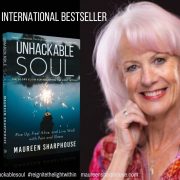


Leave a Reply
Want to join the discussion?Feel free to contribute!